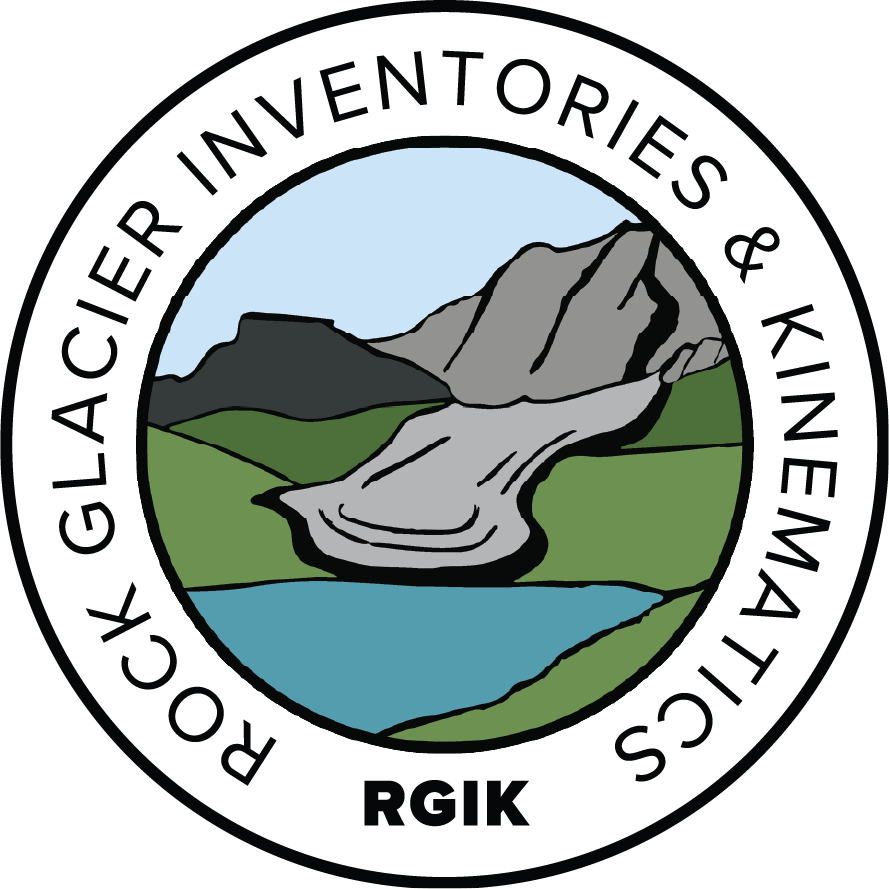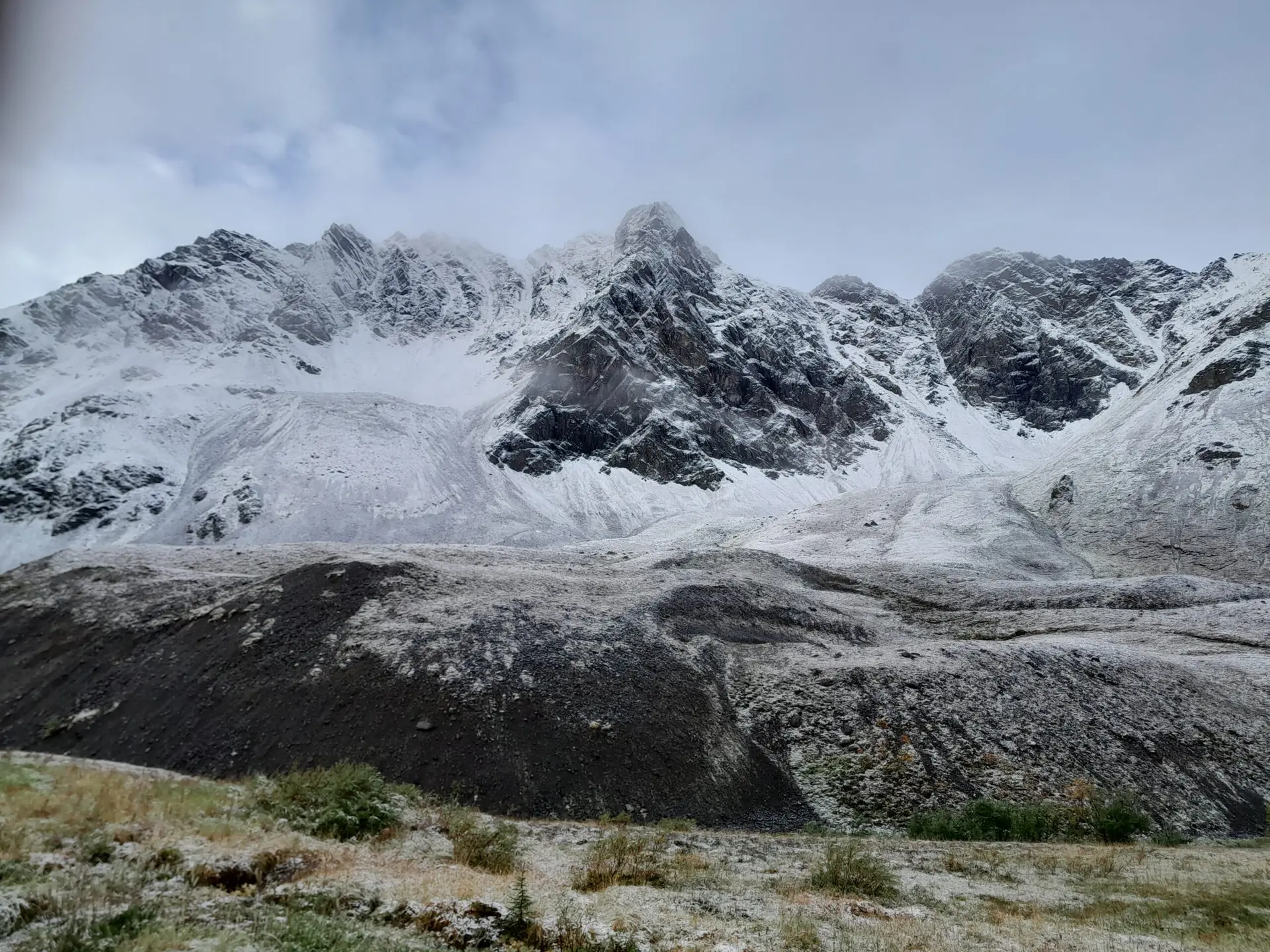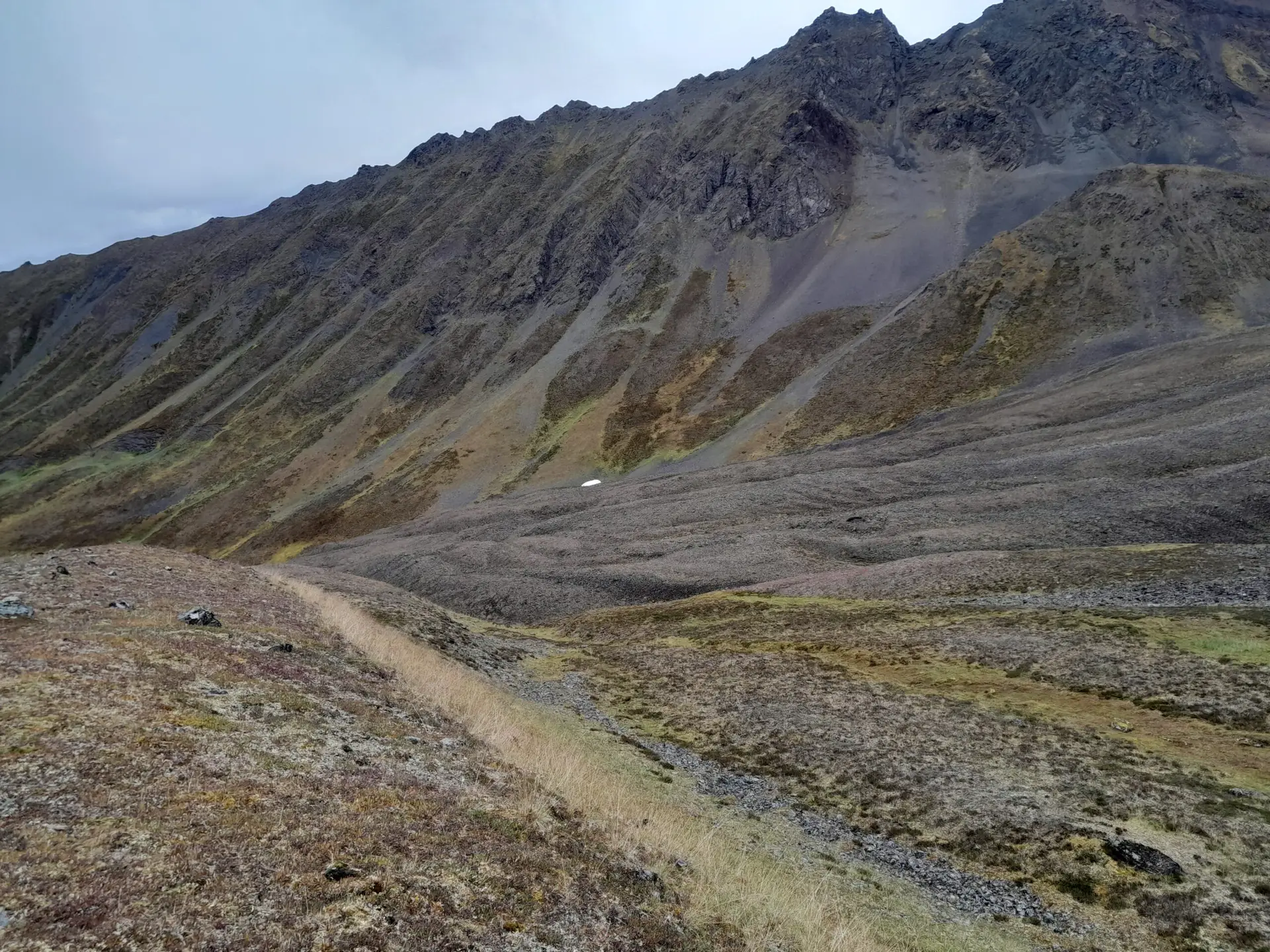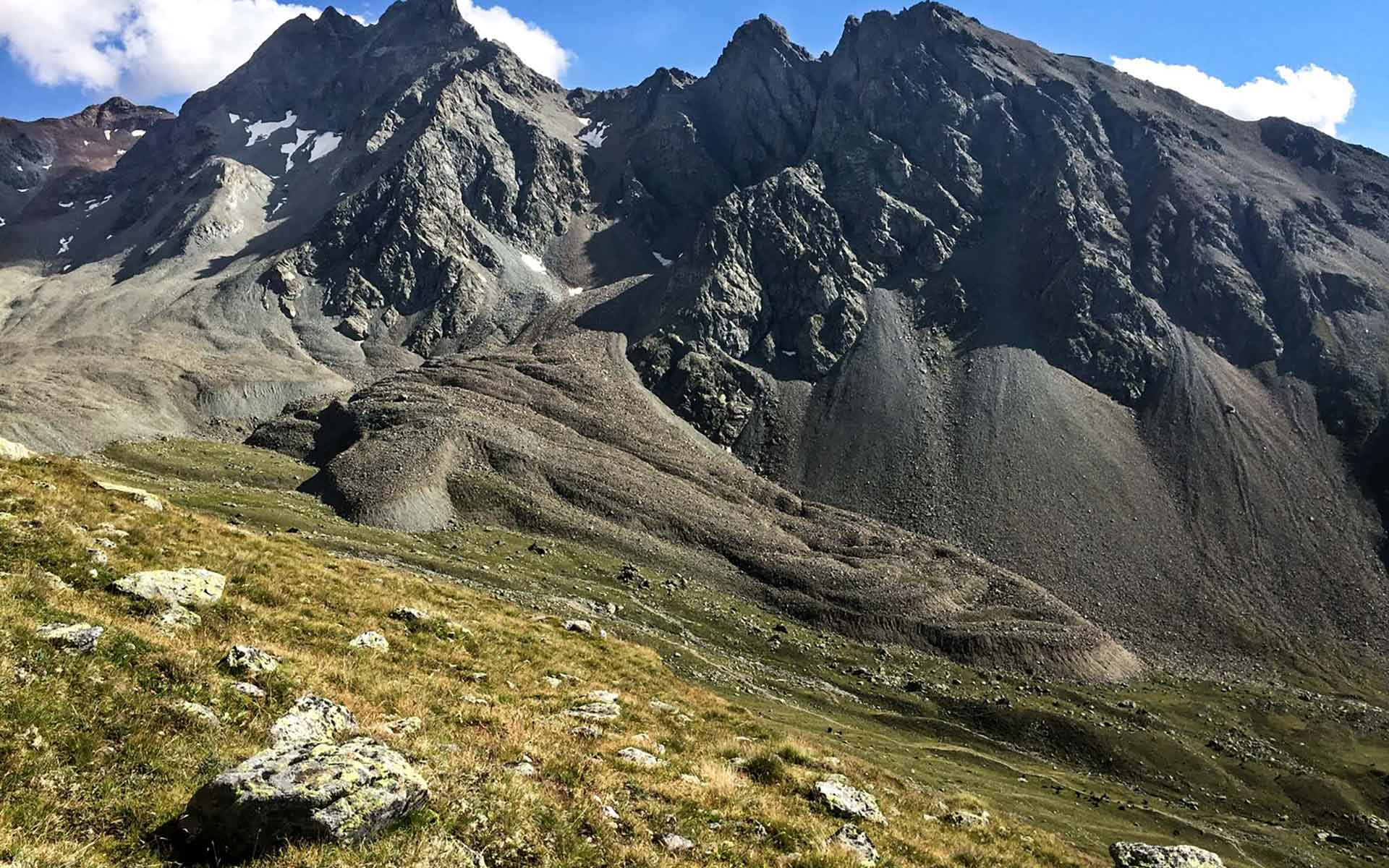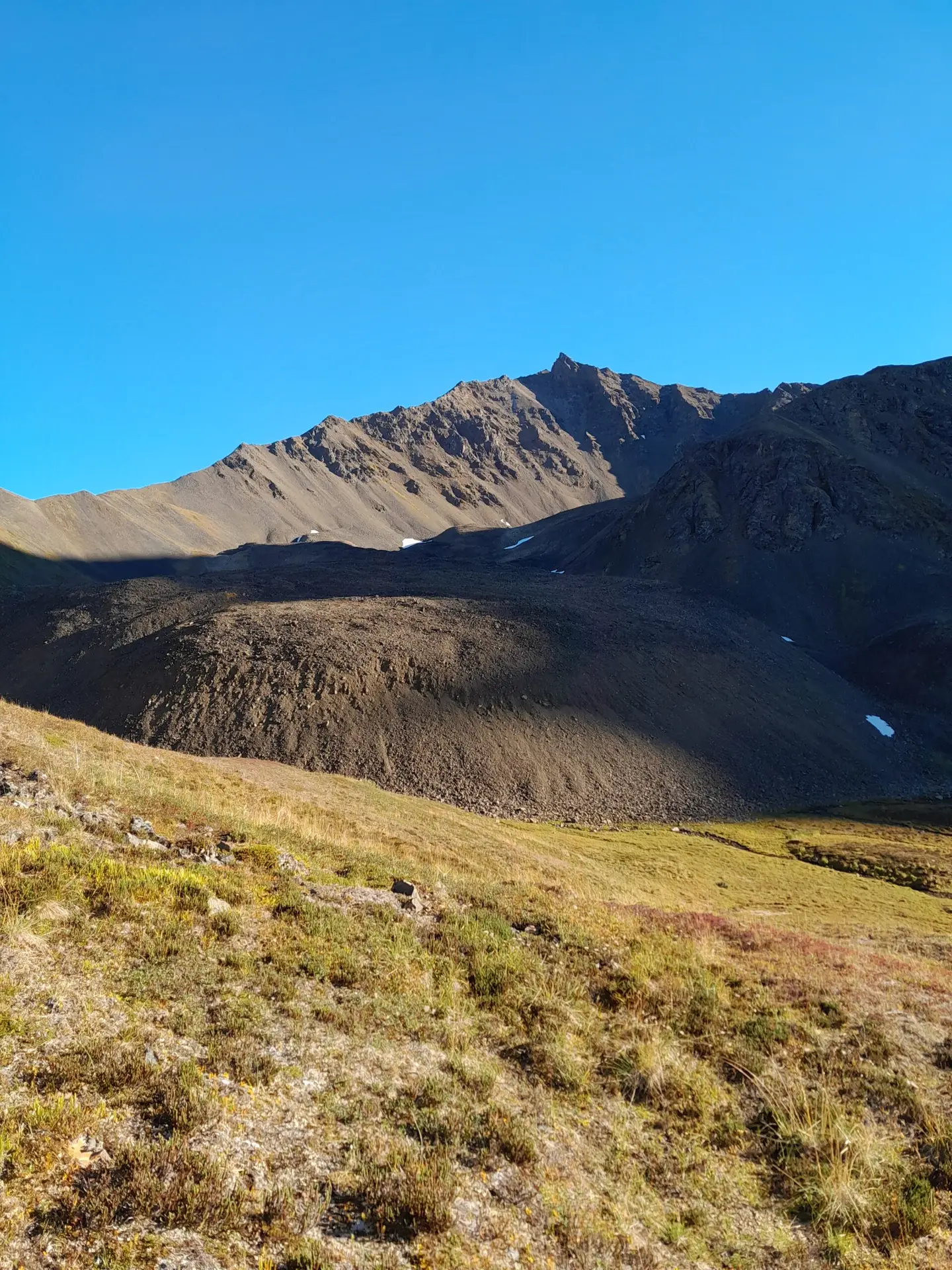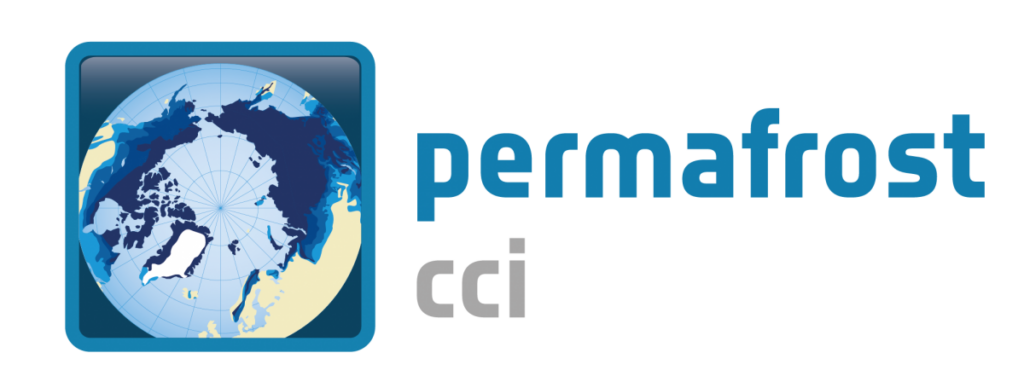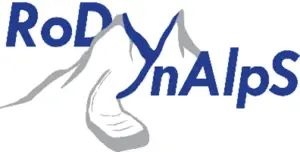RGIK Mission
RGIK Objectives
Rock Glacier Inventory (RoGI)
Rock Glacier Velocity (RGV)
Machine Learning
- To coordinate the global complication and distribution of standardised rock glacier products; and
- To foster international collaboration and advancements in the understanding of rock glaciers.
These goals reflect our dedication to improving the consistency and accessibility of data, as well as the rigor of rock glacier research through a collaborative scientific framework internationally.
- To develop international standards and guidelines for inventorying and monitoring rock glaciers;
- To coordinate and encourage the global compilation of standardised rock glacier products, including, but not limited to, Rock Glacier Inventories (RoGI) and the Essential Climate Variable (ECV) parameter Rock Glacier Velocity (RGV);
- To design, implement, and foster a global database compiling rock glacier products;
- To promote and support the dissemination and use of RGIK standards, guidelines and products, and communicate novel results internationally; and
- To foster a network and provide a common forum in which to communicate and exchange ideas related to rock glacier research.
RGIK has developed training datasets, documents, figures, and guidelines to help standardise the rock glacier inventorying process on a global scale. These guidelines address the diverse identification methods previously used, ensuring more uniformity and enhancing the reliability and resolution of inventories produced.
Through guidelines and documents, RGIK has encouraged the global compilation of standardised rock glacier products including the Essential Climate Variable (ECV) parameter Rock Glacier Velocity (RGV). This standardisation facilitates consistent, global monitoring efforts of rock glacier dynamics to understand their responses to climate change.
RGIK is integrating machine learning to enhance rock glacier inventories, streamlining the process and investigating the relationships/variables that influence their distribution. This will facilitate a deeper understanding of rock glacier dynamics.
Constitution & Bylaws
Constitution
Rock Glacier Inventories and Kinematics (RGIK) is a scientific community recognised by the International Permafrost Association (IPA) as a Standing Committee. The mission of RGIK is to coordinate the global compilation of standardised rock glacier products, and to foster international collaboration and advancement in the understanding of rock glaciers.
RGIK Constitution Date (approval by the General Assembly): 07 June 2024 (approved by 53 people, 1 abstention)
IPA Constitution Date (approval by the IPA Council): 16 June 2024 (approved unanimously)
Bylaws
Article I - Organisation Type and Name
The International Permafrost Association (IPA) Standing Committee for Rock Glacier Inventories and Kinematics (RGIK) is a non-profit organisation, herein referred to as RGIK.
Article II - Territory
RGIK is international and open to all territories worldwide.
Article III - Location
The RGIK headquarters shall be the address determined by the designated Chair (See Article VII). In case of co-chairing, the co-Chairs agree on the selected headquarters.
Article IV - Mission Statement and Objectives
Section 1: Mission Statement
RGIK mission is:
- To coordinate the global compilation and distribution of standardised rock glacier products; and
- To foster international collaboration and advancements in the understanding of rock glaciers.
Section 2: Objectives
RGIK aims:
- To develop international standards and guidelines for inventorying and monitoring rock glaciers;
- To coordinate and encourage the global compilation of standardised rock glacier products, including but not limited to, Rock Glacier Inventories (RoGI) and the Essential Climate Variable (ECV) parameter Rock Glacier Velocity (RGV);
- To design, implement, and foster a global database compiling rock glacier products;
- To promote and support the dissemination and use of RGIK standards, guidelines and products, and communicate novel results internationally; and
- To foster a network and provide a common forum in which to communicate and exchange ideas related to rock glacier research.
Article V - Membership
Section 1: Definition
Membership is free and open to anyone interested in the mission and objectives of RGIK (see Article IV). Membership is acknowledged by website registration and does not require affiliation with an institution and/or organisation.
Section 2: Rights and Duties
Members are entitled to participate in RGIK activities, to nominate themselves or be nominated for any position within the RGIK organisation structure, and to propose new activities by contacting any member of the Executive Committee (Article VII), the RGIK Office (Article VII), the Advisory Board (Article IX), or additional active councils and working groups (Article X).
Members are in charge of communicating and updating valid email addresses to RGIK.
Members shall not speak on behalf of RGIK, or claim their views as a representative of RGIK without explicit approval from the General Assembly or the Executive Committee.
Section 3: Termination of Membership
Members have the right to terminate their membership at any time by using a contact form on the website, or by emailing the RGIK Office or the Executive Committee.
Article VI - General Assembly
Section 1: Definition
The General Assembly is the legislative body of RGIK, consisting of all RGIK members (see Article V).
Section 2: Rights and Duties
The General Assembly shall:
- Elect the members of the Executive Committee;
- Vote on any change of the Bylaws;
- Vote on new RGIK policies and Addendums (see Article XI), or other topics, when the majority of the Executive Committee finds it necessary (see Article VI, Section 4); and
- Communicate its view on ongoing and future RGIK activities.
Section 3: Meetings
The General Assembly shall meet once a year, online or in-person during scientific conferences, such as International Conferences on Permafrost (ICOP) or Regional Conferences on Permafrost (RCOP). In-person General Assembly meetings must always provide hybrid options for online attendance.
The Executive Committee is in charge of organising and communicating the programme of the General Assembly meetings to the members. During these meetings, the Executive Committee informs about their activities and gets feedback from the members.
Section 4: Election Procedure
Elections of the Executive Committee shall take place every two years.
Elections shall be organised electronically by the Executive Committee and last a total of 48 hours to ensure equity in different time zones globally.
The call for candidates shall be sent at least six (6) weeks before the election date. Candidates must communicate their candidature at least one (1) month before the election date. Information about the candidates and instructions on the voting process shall be provided by email to the RGIK members at least two (2) weeks before the election date.
The election results are decided by the majority of the voting members.
Section 5: Vote Procedure
Vote occurs when the Bylaws must be changed or on other topics when the majority of the Executive Committee finds it necessary. Any RGIK member can suggest a vote by contacting the Executive Committee. For topics not requiring changes of Bylaws, the Executive Committee is responsible for deciding if the topic requires a vote by the members.
Votes shall be organised electronically by the Executive Committee and last 48 hours to ensure equity in different time zones globally.
Requests on vote topics can be communicated to the Executive Committee at any point during the year. Information on the topic and instructions on the voting process shall be provided to the RGIK members by email at least two (2) weeks before the vote date.
Article VII - Executive Committee
Section 1: Definition
The Executive Committee, herein referred to as ExCom, is the governing body of RGIK.
The ExCom shall consist of a minimum of three (3) and a maximum of nine (9) members, elected by the General Assembly. A majority of the ExCom should be from IPA member countries, defined by their professional affiliations or countries of residence.
The ExCom self-organises. The following roles shall be allocated: one (1) Chair and one (1) vice-Chair, or two (2) co-Chairs. These two (2) positions are designated by the elected ExCom. The (co-/vice-)Chairs should be from IPA member countries, defined by their professional affiliations or countries of residence. The (co-/vice-)Chair names and organisation of the chairing duties shall be communicated to the RGIK members.
Depending on the current needs of RGIK, specific administrative and representative tasks may be allocated: e.g., secretary, web/data management, follow-up of thematic working groups, as well as communication with other organisations, such as the IPA, GTN-P, and GCOS. These roles are to be handled flexibly. They can alternate or be combined among the ExCom members.
For each term, the ExCom roles and organisation shall be communicated to the RGIK members.
Section 2: Rights and Duties
The ExCom shall manage and coordinate the day-to-day RGIK activities.
The ExCom shall meet regularly online or in-person, such as during International Conferences on Permafrost (ICOP) or Regional on Permafrost (RCOP). In-person ExCom meetings must always provide hybrid options for online attendance.
The ExCom shall organise the General Assembly meetings, election, and votes. The ExCom shall appoint the Advisory Board (see Article IX), as well as other councils and working groups (see Article X). It shall propose new activities and implement the strategic and scientific decisions of the General Assembly and recommendations of the Advisory Board. The ExCom shall report on the RGIK activities and communicate with the International Permafrost Association (IPA). Individual members of the ExCom can serve as liaisons between RGIK and other national/international organisations with complementary focuses and objectives.
Section 3: ExCom Members
The ExCom members are elected by the General Assembly. One (1) term lasts two (2) years, with the possibility for re-election. ExCom members can serve a maximum of three (3) consecutive terms, to ensure a fair rotation of all members.
The (co-/vice-)Chair(s) are designated by the ExCom for each term, and can serve a maximum of two (2) consecutive terms in these positions, to ensure a fair rotation of all members.
The RGIK Chair shall call, set the agenda, and chair ExCom meetings. The Chair shall, in collaboration with the other ExCom members, prepare an annual report of the RGIK activities to be communicated to the International Permafrost Association (IPA) and present RGIK activities at the IPA Council meetings. The Chair acts as the primary point of reference for maintaining dialogue and coordination with the IPA.
The Vice-Chair shall perform the duties of the Chair in the temporary absence or disability of the Chair, and serve as the Chair’s principal assistant in conducting the business of RGIK.
Co-chairing can replace the Chair/Vice-Chair structure. In case of co-chairing, the co-Chairs self-organise and share the duties of Chair and Vice-Chair.
The other ExCom members shall attend the meetings, as well as share the roles and tasks of the Executive Committee (see Article VII, Sections 1 and 2).
Section 4: ExCom Meetings
The (co-/vice-)Chair(s) of the ExCom shall be responsible for ensuring that the meetings are run in an orderly manner. ExCom members may overrule any particular decision of the (co-/vice-)Chair(s) by majority vote.
Unless otherwise specified by these Bylaws, each decision shall be made by the consensus of the ExCom. The quorum requirement is that at least two-thirds of the ExCom be present for consensus decisions. In consensus cannot be reached, the fallback decision-making procedure shall be a majority vote of all ExCom members. The vote can be organised electronically and, in that case, shall last at least 48 hours to ensure equity in different time zones globally.
Section 5: Selection, Renewal, and Termination of ExCom Members
The ExCom members are elected for a term of two (2) years by the General Assembly. Any RGIK member can be nominated or self-nominated to the ExCom.
In case of a resignation of a (co-/vice-)Chair within the two-year period, the ExCom designates a new (co-/vice-)Chair and communicates this change to the RGIK members. If an ExCom member resigns within the two-year period, the ExCom shall announce the opening of a position and organise an election at the next General Assembly. An interim member may be nominated by unanimous vote of the ExCom to serve until the next election. The ExCom can appoint interim members until the maximum quota of nine (9) members has been met (see Article VII, Section 1).
Section 6: ExCom Ex-Officio Members
To ensure the transition between elected and former ExCom, incumbent ExCom members shall assume the role of ExCom Ex-Officio members for a duration of one (1) year.
ExCom Ex-Officio members, herein referred to as Ex-Officio members, are non-voting, past ExCom members that continue to provide support on tasks and duties when requested by the current ExCom.
Ex-Officio members shall advise and provide feedback to the current ExCom. At the invitation of the current ExCom, Ex-Officio members may be welcome to attend ExCom meetings, but have no voting rights in this capacity.
Article VIII - RGIK Office
Section 1: Definition
The RGIK Office is the administrative body supporting the ExCom in coordinating and managing all RGIK related activities.
The RGIK Office is an optional body that depends on dedicated funding. The RGIK Office tasks are included in the work specification of a funded position through the institution of any ExCom member. If no funding is available, there is no RGIK Office and the RGIK administrative tasks are performed by the ExCom.
Section 2: Rights and Duties
The RGIK Officer shall support the ExCom in carrying out the overall coordination and management of the network, data management including the collection, control, and distribution of data, the periodic reporting and release of RGIK products, as well as
Section 3: Selection, Renewal, and Termination of RGIK Officer
The RGIK Officer is appointed following the hiring criteria and procedure of the host institution with the support of the ExCom.
Article IX - Advisory Board
Section 1: Definition
The Advisory Board, herein referred to as AB, is the counselling body providing non-binding strategic advice and scientific expertise to the ExCom.
The AB shall consist of a minimum of three (3) and a maximum of nine (9) members appointed by the ExCom. The AB shall be composed of people well-established in the rock glacier community, and shall represent diverse institutions, regions, and backgrounds.
Section 2: Rights and Duties
The AB shall provide non-binding advice and recommendations to the ExCom, and assist in determining the RGIK strategy and priorities.
The AB reviews the work of the ExCom and provides recommendations on the present and future developments of RGIK activities.
Section 3: Advisory Board Members
There are no defined roles in the AB. The AB shall self-organise.
Section 4: Advisory Board Meetings
The AB and ExCom shall meet at least once a year to review the ongoing RGIK activities and discuss the future directions of RGIK. AB meetings may take place more frequently with or without the participation of the ExCom.
The ExCom shall call upon the AB whenever needed. At the invitation of the ExCom, the AB members may be welcome to attend ExCom meetings, but have no voting rights in this capacity.
Section 5: Selection, Renewal, and Termination of Advisory Board Members
The AB members are appointed by a majority vote of the ExCom. Any RGIK member can be nominated or self-nominated to the AB through communication to the ExCom. Efforts will be made to ensure that the AB provides broad and effective representation of RGIK members. Individual board memberships may be terminated at the request of the individual, or by a majority vote of the ExCom.
Article X - Additional Councils and Groups
Additional regional council(s) and thematic working group(s) can be suggested by any RGIK member. The ExCom shall decide the creation of additional councils/groups and follow-up their work. The councils and groups are to be handled flexibly. They can be led by any RGIK member. An ExCom member is appointed as representative within each council/group, to ensure communication and coordination.
Article XI - RGIK Policies and Addendums
The RGIK Constitution and Bylaws shall contain the general organisation structure and formal procedure of the Standing Committee. They shall contain information sufficiently important to require a formal approval to change, but sufficiently malleable that the rigidity of the RGIK Bylaws modification procedure would be inappropriate.
Additional RGIK Policies and Addendums shall govern in all cases where they are applicable, and in which they are not inconsistent with the Constitution and Bylaws. New RGIK policies can be suggested by the ExCom or any RGIK member. Their establishment or modification must be approved by a majority vote of the General Assembly (see Article VI).
Addendum 1: Equity, Diversity, and Inclusion (EDI) Code of Conduct
RGIK is committed to providing a collaborative environment that allows for open dialogue and constructive debates, while fostering equity, diversity, and inclusion (EDI).
Equity is defined as the removal of systemic barriers, enabling all individuals to have equitable opportunity.
Diversity is defined as the variety of unique dimensions, identities, qualities, and characteristics individuals possess that should be respected equally.
Inclusion is defined as the practice of ensuring that all individuals are valued and respected for their contributions, and are supported equitably in a culturally safe environment.
The Code of Conduct set out in this Addendum applies to all RGIK members, all attendees at RGIK events, and all people and institutions that wish to collaborate with RGIK.
A1.1 Freedom of Speech
All members shall have equal right to communicate their views. Diverse opinions are valued, as long as they do not threaten the EDI principles, and do not discriminate (see A1.2) and harass (see A1.3) other members of the RGIK community.
Members shall not speak on behalf of RGIK, or claim their views as a representative of RGIK without explicit approval from the General Assembly or the Executive Committee (see Bylaws Article V, Section 2).
A1.2 Communicating Ideas, Critiques, and Complaints
RGIK is committed to creating an environment where every voice matters. For this reason, a system shall be implemented in which anyone who has a complaint regarding any RGIK decision/action, is able to communicate it openly or anonymously.
The RGIK email address, addressed to the RGIK Officer and selected ExCom members, can be used at any time to communicate ideas and report complaints. The list of the people having access to this email address must be clearly stated on the website. A further option for members is to reach out to an individual ExCom member. All members of the ExCom accept the responsibility to receive ideas, critiques, or complaints and deal with them in a responsive, respectful, and effective manner.
A1.3 Discrimination
Discrimination is defined here as any unequal or unfair treatment in professional opportunities, education, benefits, evaluation, and employment (such as hiring, termination, promotion, compensation) as well as retaliation and various types of harassment.
RGIK does not tolerate any form of discrimination within the organisation, at its events or its activities, and will not cooperate with organisations or institutions that promote any form of discrimination. Discriminatory practices can be explicit or implicit, intentional or unconscious. RGIK rejects discrimination by any means, based on factors including (but not limited to):
- Age
- Citizenship
- Country of Residence
- Disability
- Ethnicity or National Origin
- Gender Identity
- Indigenous or Tribal Affiliation
- Language
- Marital or Civil Partnership Status
- Physical Appearance
- Political or Other Opinion
- Pregnancy or Parental Status
- Race
- Religion
- Sex
- Sexual Orientation
- Socio-Economic Status
- Veteran or Military Status
The factors here are listed in alphabetical order, which does not imply any level of importance.
All RGIK members, as well as attendees, speakers, guests at RGIK events and possible staff of any RGIK event location are to be treated with respect and consideration.
RGIK values a diversity of views, opinions, and cultures among its members. RGIK is a diverse network with members of many different cultures, heritage, and languages. Members may communicate with other members in their non-primary language, and certain expressions may be understand differently in other cultures. Any communication should demonstrate respect for others; critique should be aimed at ideas rather than individuals.
A1.4 Harassment
Harassment is a type of discrimination. It consists of acts that are unwanted, unwelcome, demeaning, abusive, threatening, or offensive. Harassment can happen as a single instance and severe act, or as multiple persistent or pervasive acts. Harassing someone can be an intentional act, or stem from ignorance (the harasser does not realise that what she/he/they is/are doing is harmful). Examples include (but are not limited to):
- Any form of degrading comments, verbal or otherwise, related to any of the factors listed above (A1.3), other others that can be considered discriminatory
- The inappropriate use of nudity and/or sexual images
- Threats or coercion
- Unwanted touching or other hostile acts
- The circulation of written or graphic material that denigrates an individual or group
- Minimising the intentionally taking actions to reduce the credibility of a harassment victim
RGIK is committed to providing a safe, productive, and welcoming community for all of its members.
Any instance of harassment or any sort of unwanted behaviour as specified above is not tolerated within the organisation or its activities.
A1.5 Reporting Discrimination and Harassment
RGIK is committed to creating a safe environment where victims of harassment or discrimination, as well as witnesses, feel empowered to report such activity. For this reason, a system shall be in place in which anyone who feels that they have been subject or witness to harassment has multiple reporting mechanisms to choose from, depending on their preference and level of comfort.
The RGIK email address, addressed to the RGIK Officer and selected ExCom members, can be used at any time to report incidents of harassment or discrimination. The list of the people having access to this email address must be clearly stated on the website. A further option for members is to reach out to an individual ExCom member. All members of the ExCom accept the responsibility to receive reports of harassment and deal with them in a responsive, respectful, and effective manner.
A form to report incidents shall be available on the RGIK website. The form can be sent nominally or anonymously. Anonymity and privacy shall be ensured upon request. Incident reports shall be dealt with care and respect. Procedures and actions shall be adapted to each specific case, accounting for anonymity and privacy requirements. If the reports are targeting one or more members of the ExCom, solutions to provide a fair and independent assessment shall be found (e.g., mediation from a third party).
Our History: 2018 - Present
Acknowledgement Statement
As we reflect on our journey and how far we have come, we are reminded that the strength of our work lies in the unwavering dedication of our incredible RGIK community. To every researcher, student, collaborator, and supporter who has stood with us in any capacity, you are the heartbeat of this initiative. It has been your shared belief in the importance of rock glacier research that has driven us forward. Thank you for being with us in this journey, for believing in the work we do, and for shaping this community with your support and vision.
Sincerely,
The RGIK Executive Committee
Timeline
At EUCOP5 in Chamonix, France, RGIK was started and officially launched as an IPA Action Group.
Pre-Workshop took place in Chambery, France on 20 March 2019 to discuss the foundations for Workshop I of the Action Group in September 2019.
Workshop I took place in Evolène, Switzerland on 23-27 September 2019.
Workshop II took place in Fribourg, Switzerland on 11-13 February 2020.
RGIK scientific committees meeting was hybrid and took place in Fribourg, Switzerland and online on 24-25 November 2022.
Workshop III took place in Puigcerdà (Catalonia, Spain) on 17 June 2023 during the EUCOP6 2023.
The Interim Executive Committee (ExCom) was chosen from a group of committed volunteers who collaboratively drafted and refined the constitution, bylaws, and addendum that now serve as the foundation of the RGIK Standing Committee.
At EGU 2024, an in-person meeting took place in Vienna, Austria with some members of the Interim ExCom present and members of the RGIK community.
The Interim Executive Committee presented the bylaws and constitution to the RGIK community. The ExCom Candidates were also introduced for election with an explanation of the voting procedures.
At the 12th International Conference on Permafrost (ICOP 2024) in Whitehorse, Canada, the new RGIK bylaws and organisation were presented to the IPA Council. At this meeting, RGIK was accepted unanimously as an IPA Standing Committee.
The ExCom has been instrumental in establishing the foundation of RGIK, overseeing the development of our website as a tool for collaboration and resource sharing. They have guided the creation of our logo and launched thematic working groups to connect experts across diverse fields.
In November 2024, a workshop for the newly formed RGV Working Group was held in Fribourg, Switzerland.
